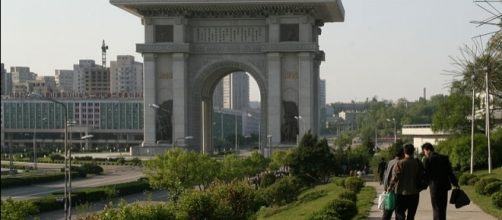Kim Jong Un had planned to launch a missile on September 9th to mark the anniversary of North Korea, but he may be disappointed because of solar storms. These could have an adverse effect on the guidance system installed in the missile and cause it to malfunction.
In the opinion of a Tokyo-based aerospace consultant, this development could prevent Kim from putting his plan into action. If that happens, the United States and Japan would have to wait for some more time to test their missile detection and tracking equipment.
The turmoil remains
Daily Mail UK reports that North Korea is determined to launch another missile and the next probable date could be October 10 which is another red-letter day for the country.
It is the anniversary of the founding of the country’s ruling Workers' Party. This is the information furnished by South Korea.
Pyongyang has already conducted its sixth nuclear test which was a thermonuclear weapon meant for mounting on its ICBMs. Earlier, it had tested its Hwasong-14 ICBMs, and experts believe that this weapon could cover large portions of the United States. That would be a matter of concern because the performance of North Korea’s weapons is improving. Recently, North Korea had sent a missile flying over Japan, and it landed in the sea. That was a sort of warning bell because Kim Jong Un has already indicated the island of Guam, in the Pacific Ocean, as a probable target.
The US has a military base on the island.
Reactions of the United States
The Trump administration has accepted the fact that North Korea did detonate a hydrogen bomb and President Donald Trump feels military action is one of the available options. In the course of interaction with media persons in the White House he said that, while he would not opt for such an action, it certainly was a possibility.
North Korea is already facing UN sanctions, but that has not been a deterrent and Kim continues to test his missiles in total defiance of the bans. The United States, South Korea, and Japan are, therefore, worried about the future scenario and want to push for stronger sanctions. One of these is to block oil supplies to North Korea.
However, China and Russia believe that talks can resolve the issue and not sanctions.
The Korean peninsula is tense, and fears of a nuclear war keep increasing with threats and counter threats being tossed about. A war of words has also aggravated an already volatile situation, and the leaders must evolve a mechanism to defuse the tension. Moon Jae-in, president of South Korea, could play a significant role in initiating a dialogue because he had expressed a desire to normalize relations with the North.


